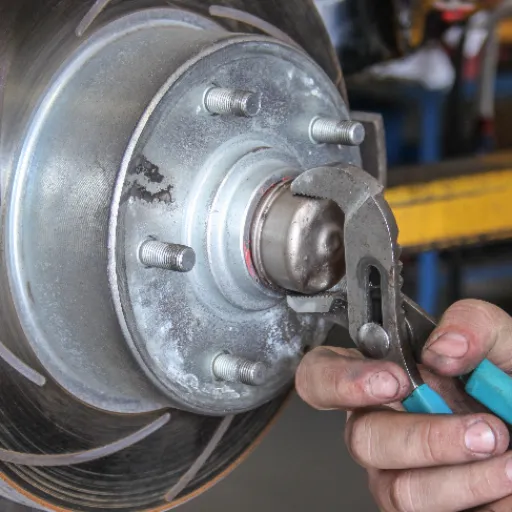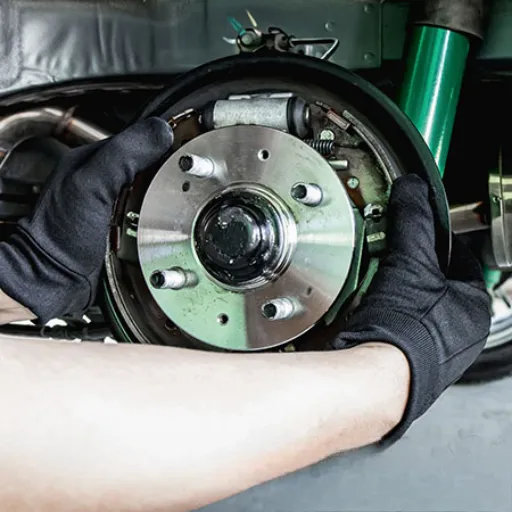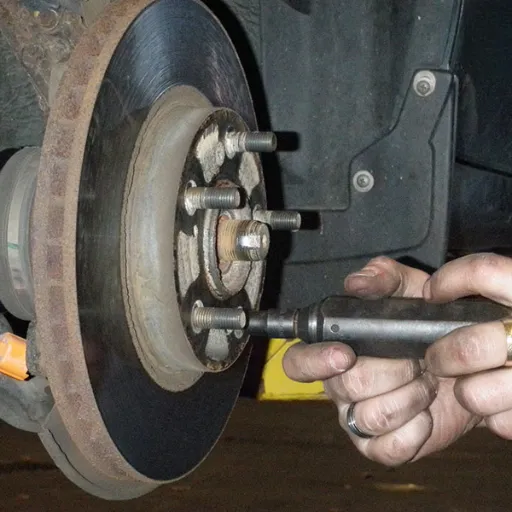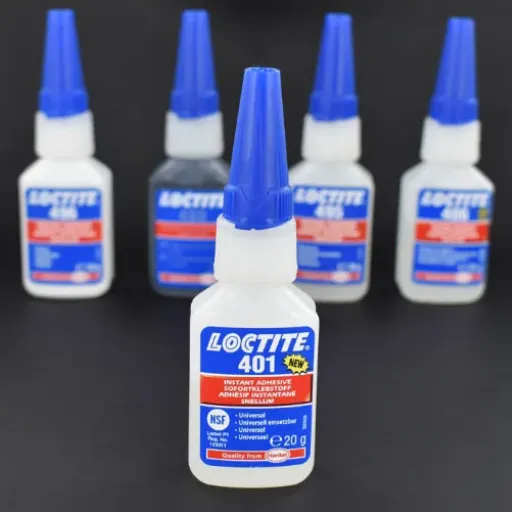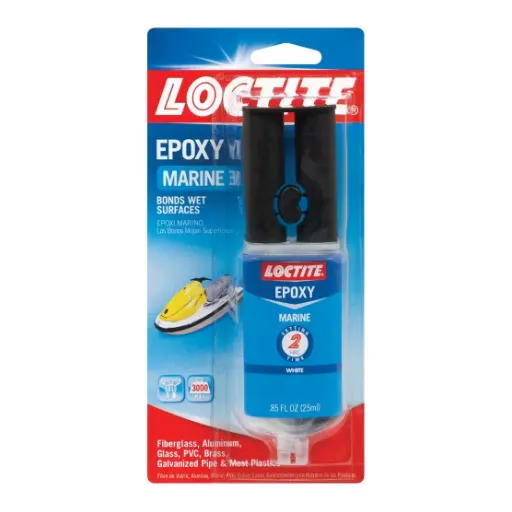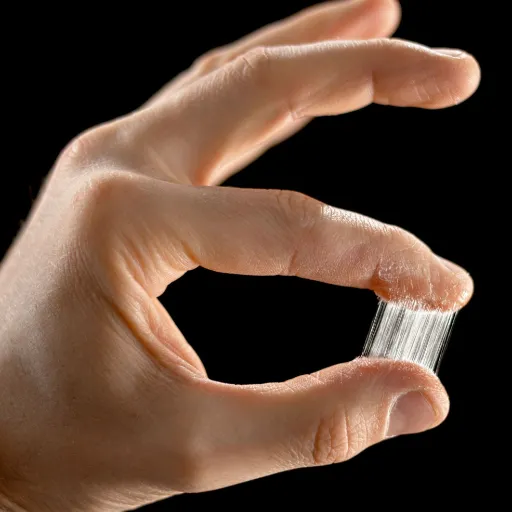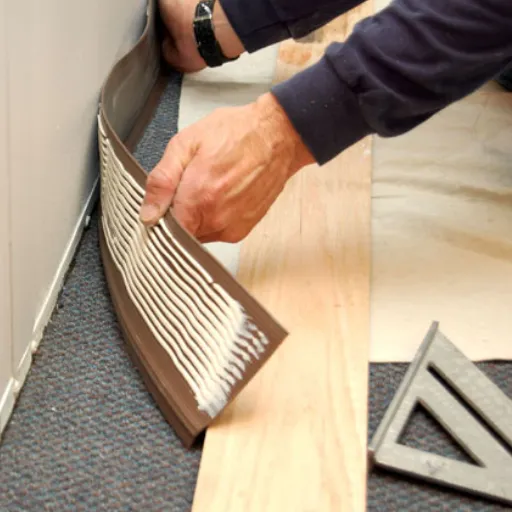When looking for the right glue for your project, two brands usually come to mind: Loctite and Gorilla Super Glue. Both brands stand for strength, versatility, and trustworthiness, but it seems to be a challenge to choose which is best for your needs. Are you repairing delicate ceramics, working with heavy-duty materials, or something else entirely? This blog post will guide you through the features, advantages, and suitable use cases for each adhesive. The days are gone when you had to repair things with tape and glue and then further manipulate the dried mess. You will be able to emerge from this with a better understanding of how these two popular choices compare to one another and which is best suited for your project.
Brand Overview: Loctite and Gorilla Glue
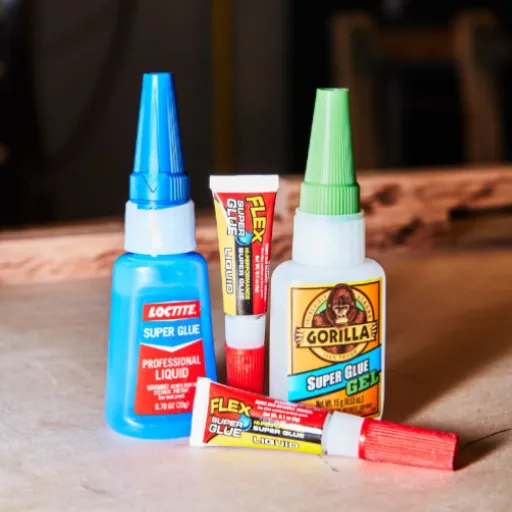
Loctite
Loctite stands as a name to count on when it comes to fine and high-performance adhesives. It offers an array of specialty adhesives, including superglue, epoxy, and construction adhesives, which are ideal for precise repairs and applications. Loctite adhesives are generally favored for their quick bonding ability and reliability on a variety of materials: metal, plastic, and ceramic.
Gorilla Glue
Meanwhile, Gorilla Glue means strength and durability. Its product range shares the same general features: they are heavy-duty in use and versatile in application, as they can glue wood, stone, metal, and more. This type of glue also remains water-resistant and holds for a very long time, making it the brand to choose for extensive outdoor repairs or more demanding jobs.
Key Takeaway: These two brands serve different purposes, so the choice you make will depend on whether you prefer precision and variety (Loctite) or strength and versatility (Gorilla Glue).
Focus on Precision and Strength
Adhesives are specifically designed for applications that require precision or strength. Loctite, therefore, provides excellent control and precision with the application of an adhesive suitable for precise tasks such as repairing delicate items or assembling intricate components. This adhesive range accommodates a variety of materials, including plastics and ceramics, with formulations specifically tailored to meet different bonding needs.
Gorilla Glue, on the other hand, is known for its strength and durability, which directly positions it as a demanding application option. It remains steadfast, especially in outdoor repairs, even under adverse conditions, making it an ideal bonding agent for wood, metal, and stone.
The approximate differentiation will revolve around ease of application, the greatest bonding strength, and overall utility.
Market Position and Target Audiences
Loctite and Gorilla Glue keep their world apart, each drawing attention from consumers toward their specific set of needs. The former is often considered the glue used in industrial and specialized applications. It targets professionals and hobbyists who need precision and material-specific solutions. Their wide range of products serves industries such as construction, automotive, and manufacturing, covering everything from epoxies and threadlockers to super glues.
Conversely, Gorilla Glue has a broad appeal because its rugged, all-purpose glues offer. It attracts the DIY crowd, homeowners, and even casual users who appreciate versatility and strength over application-specific qualities. Durability and toughness are the primary attributes for which the Gorilla label is known, establishing a reliable identity for glues across all projects, from minor repairs inside the house to larger outdoor maintenance tasks.
According to current search trends, there is indeed a high demand for generic glues, with searches for Gorilla Glue overshadowing those for Loctite worldwide. Nevertheless, Loctite still reigns supreme in the specialized markets where critical technical precision is required. So, in essence, there exist two separate uses for these brands, catering to both the typical user and the professional sector.
Key Features and Benefits of Each Glue
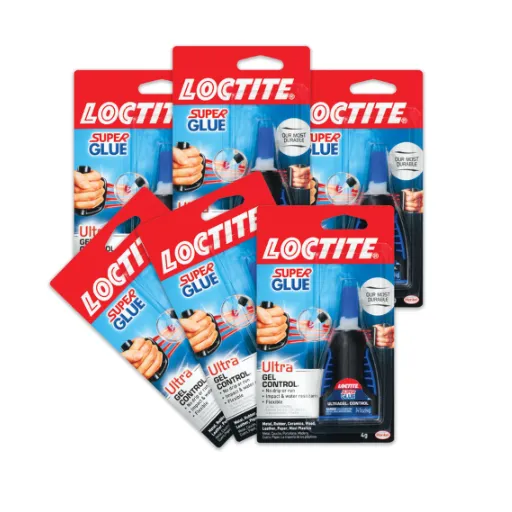
Gorilla Glue
- Versatility: Works well on a variety of surfaces, including wood, metal, ceramic, foam, and glass.
- Water Resistance: This material works well for both indoor and outdoor projects, as it is waterproof and can withstand harsh conditions.
- Expanding Formula: Expands while curing to create a strong and durable bond, making it a choice for uneven surfaces.
- Strength: Heavy-duty bonding even under higher stress.
Loctite
- Precision: Pinpoint application can be made on delicate or detailed projects, such as minor repairs or bonding intricate surfaces.
- Quick Drying: Fast-setting formulas result in less wait time and a rapid completion of tasks.
- Specialized Formulas: Offers formulas tailored for specific materials, including metal, plastic, or glass, to ensure a strong bond.
- Clean Finish: Minimally expands and leaves a smooth finish, making it useful for applications where a neat appearance is desired.
Versatility Across Materials and Strength
While Loctite and Gorilla Glue both demonstrate versatility and strength on various materials, there are notable differences between the two products. Loctite has been the leading brand when precision and bonding are required, particularly for metals, plastics, and glass. Hence, if a project requires very careful dispensing yet a strong application, Loctite would be the solution. In contrast, when uneven or porous surfaces are being joined, a glue with greater expansion resistance and holding power, such as Gorilla Glue, is used for wood, ceramics, or foam. It is waterproof and highly durable, making it ideal for heavy-duty or outdoor fixes.
Choosing either glue is usually subject to the particular desire of a project. If one requires precise gluing, a neat finish, or a specialty gluing product for a clean surface, the answer is Loctite. For any grubby, all-purpose application or relatively rough-textured gluing with no particular bonding, Gorilla Glue is the answer. Ultimately, both offer excellent solutions and will perform admirably for a wide range of repairs and construction projects.
Comparison Table of Key Features
| Key Feature | Loctite | Gorilla Glue |
|---|---|---|
| Bonding Strength | High precision, strong bonds | Powerful, heavy-duty bonds |
| Drying Time | Quick-drying, sets in seconds | Slightly longer, stronger curing bonds |
| Material Compatibility | Best for small, precise surfaces | Works on most materials, versatile |
| Durability | Reliable for indoor use | Impact-resistant, suitable for outdoors |
| Water Resistance | Limited water resistance | Waterproof, ideal for wet conditions |
| Ease of Use | Precision applicators, no-mess formula | Expands during curing, requires control |
| Applications | Ideal for crafts, minor repairs | Heavy-duty repairs, industrial use |
| Eco-Friendliness | Limited eco-friendly options | Few eco-friendly options are available |
| Packaging | Compact, precision-focused designs | Larger bottles, multipurpose packaging |
| Price Range | Affordable, budget-friendly | Slightly higher, premium pricing |
Use Cases: When to Use Each Product
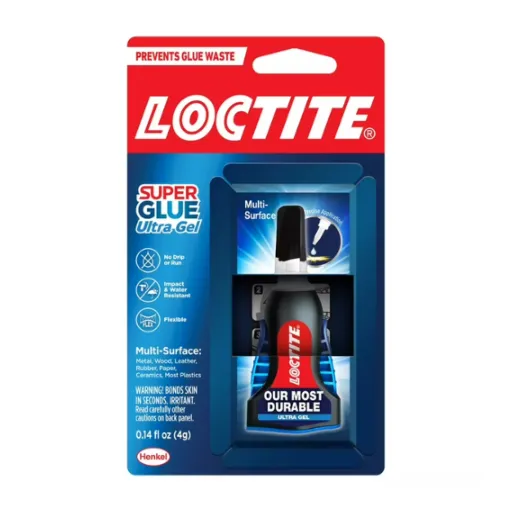
Glue Stick
Best for: Lightweight materials such as paper, cardboard, and photos.
Ideal Scenarios: School projects, scrapbooking, and light crafting activities.
Why Use It: Easy to handle, clean, and precise, ensuring quick application without mess.
Heavy-Duty Adhesive
Best for: Bonding strong materials such as wood, metal, or plastic.
Ideal Scenarios: Repairs involving furniture, industrial projects, or outdoor equipment.
Why Use It: Durable and long-lasting, with the ability to withstand stress and environmental factors.
Ideal Scenarios for Loctite Super Glue
A vast array of applications requiring precision and strength present an ideal setting for Loctite Super Glue. Household repairs, such as fixing broken ceramic or glassware items, jewelry repairs, or reattaching small plastic parts, are just some of the uses for Loctite Super Glue. From there, it becomes apparent that a quick-bonding glue like this, which can be used with a wide range of materials—from wood to rubber or metal—would be perfect for making final touches to crafting projects or DIY assignments. Its quick-drying time also renders it suitable for emergency repairs, one that holds strong just seconds after application. As it conveniently glues shoes where cracks have happened, secures loose appliance parts, or stuffs more complex projects, Loctite Super Glue blends ease of use with strict, professional-grade performance.
Best Applications for Gorilla Super Glue
Gorilla Super Glue holds an excellent reputation for its versatility and strength, and it is used on a wide range of materials and tasks. It sets with incredible speed onto surfaces such as wood, metal, ceramic, rubber, and plastic, so there’s practically never a need to hold the clamping force. Instantly making it very handy around the house for minor repairs, such as mending records that have fallen apart, replacing handles on pots, or fixing cracks in furniture. Its fine tip and controlled flow design also make Gorilla Super Glue great for detail crafting and projects needing precision application. This glue will perform well on a water-resistant level for holding together any items exposed to moisture, such as outdoor fixtures or some kitchen repairs. From everyday maintenance to serious crafting, Gorilla Super Glue brings strength, durability, and convenience all wrapped into one.
Performance Comparison: Strength, Durability, and Drying Time
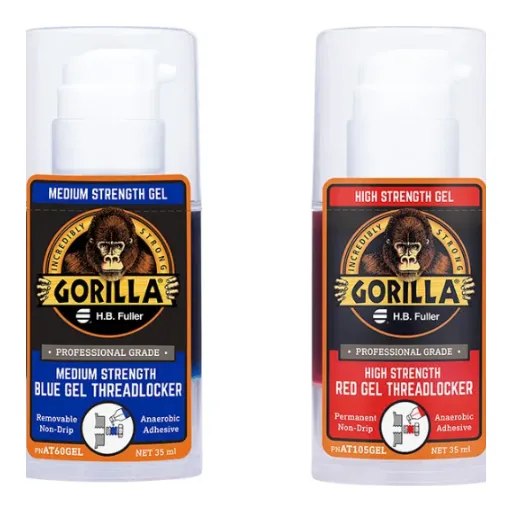
When comparing these two brands, both are recognized for their strong and reliable bonds, but they excel in different areas.
- Strength: Gorilla Super Glue is a general-purpose glue with a specially reinforced formula for use on many materials, including porous surfaces. Loctite also provides good bond strength, but is particularly excellent for precision bonding and minor repairs.
- Durability: Gorilla is going to outperform Loctite in durability far. In terms of impact resistance and water resistance, Gorilla is superior to Loctite, making it an excellent glue for outdoor applications and areas subject to moisture. Loctite holds well in the interior, where durability is crucial, especially when precision is key.
- Drying Time: Loctite is typically a faster-drying product, with a drying time of 10-15 seconds. In contrast, Gorilla Super Glue may take a little longer to set, but it firmly holds once cured.
Comparing Bonding Strength on Various Materials
While testing the bonding strength of the two glues on different surfaces, both work exceptionally well, but have specific superiorities according to the surface.
Loctite produces stronger bonds on metals since it can be applied precisely and withstands shear stress, making it suitable for minor repairs in mechanical or industrial settings. Gorilla Glue, on the other hand, can maintain its strength on metal once it expands, thus allowing for greater durability in large, bulky attachments.
Gorilla Glue works better on wood because its polyurethane formula penetrates the wood fibers, forming a strong and durable bond. Loctite works well, too, but preferably on non-porous surfaces and for minor wooden repairs.
On plastics, especially those such as polyethylene or polypropylene, Gorilla Glue is less successful in holding. Still, some Loctite compounds (for example, Loctite Plastic Bonder) are effective on their specific formulations.
Both glues are suitable for ceramics and glass, but Loctite takes precedence for quickly fixing delicate or decorative objects and achieving a clear finish.
Generally speaking, the choice depends on the actual surface and the project’s demands, whereby Gorilla Glue offers a broad spectrum, while Loctite provides precision and speed.
Durability: Impact and Temperature Resistance
As far as impact resistance is concerned, both Loctite and Gorilla Glue have been engineered to form long-lasting bonds that withstand stresses and vibrations. Thanks to the polyurethane system, Gorilla Glue is precisely designed for heavy-duty applications as the glue expands to create a strong yet flexible bond that withstands tremendous pressure. On the other hand, Loctite cyanoacrylate adhesives offer their power in precision and deliver substantial impact resistance, making them suitable for smaller or more delicate projects.
In terms of temperature resistance, Gorilla Glue really shines, as it can withstand both low and high temperatures. This characteristic makes the glue suitable for outdoor projects in climates that experience temperature fluctuations. Loctite, on the other hand, is quite strong in itself and effective in applications where temperature is well controlled; however, it may not be as effective when subjected to extreme heat or cold. Ultimately, it comes down to a matter of choice, depending on the application requirements. Gorilla Glue is the best choice for harsh conditions, while Loctite edges out the competition in precision when conditions are moderate.
User Reviews and Feedback
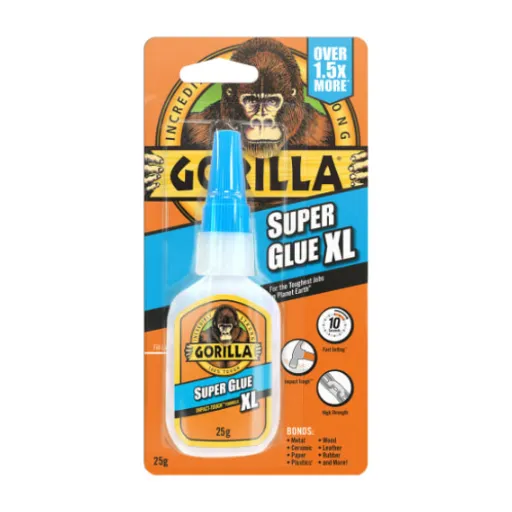
Generally, user reviews praise Gorilla Glue for its ease of use and extensive work capabilities in challenging media and challenging situations, as well as in outdoor projects. There are very few that laud its water resistance and heat tolerance; however, some may find it a little messy to apply since it expands upon curing.
While Loctite seems to shine in somewhat confined spaces, it garners good user reviews for precision and ease of use. People appreciated how quickly its formulas dried and how clean they remained, making it perfect for delicate or indoor projects. Some, however, suggest that its performance may deteriorate under extreme weather conditions, such as high humidity or freezing temperatures.
Overall, both products are well-regarded, with the choice depending on project needs, environmental factors, and application preferences.
Consumer Insights from Online Forums
In a world filled with multiple and complex consumer behavior patterns, the unique and multidimensional behavioral instances require study. A torrent of questions is being asked in online forums, indicating the needs of consumers. Many internet users search for recommendations on product selection for a universal-use, durable solution, and for some, concerns arise about the product’s lifespan and environmental impact. Queries are commonly raised on the best product to use for a condition, such as extreme temperatures or high humidity. Furthermore, the search data indicates an increased inclination toward environmentally safe and non-toxic products, suggesting a trend toward greener choices. These considerations underscore the necessity for a seamless integration of performance, versatility, and ecology into product development, thereby meeting the evolving demands of consumers.
Trends in Adhesive Preferences
I’ve noticed an ever-growing trend among customers seeking adhesives that serve multiple applications, offering versatility and durability. On the other hand, they are shifting toward green products, which is a sign in itself that this world has become environmentally conscious. Functionality balanced with sustainability could very well be the option that these changes in choice are evolving toward.
Reference Sources
Here are five professional and authoritative reference sources regarding “Loctite or Gorilla Super Glue” that you can use to check the veracity of your article:
- Improved Usability of a Novel Biomimetic Surgical Adhesive for Craniomaxillofacial Fractures
Compares the adhesive strength of Gorilla Glue, Loctite, and other commercial adhesives for medical uses. - Single-Step Fingerprint Fumigation with Common Dyes
Examines the effectiveness of Loctite and Gorilla Super Glue in forensic applications by observing fume generation and efficacy. - Fully Biobased Adhesive from Chitosan and Tannic Acid with High Water Resistance
Test adhesives for water resistance and lap shear strength against those of Gorilla Glue and Loctite Super Glue. - Comparative Study of Adhesives for Pull-Off Adhesion Testing in the Aerospace Industry
Reviews the use of adhesives, including Loctite and Gorilla Glue, for aerospace applications. - Sealing the Deal: Effects of Fabrication Parameters on the Performance of Textile Pneumatic Haptic Actuators
Studies the performance of Gorilla Super Glue Gel and Loctite in airtight sealing.
Frequently Asked Questions (FAQs)
What is the difference between Loctite super glue and Gorilla super glue?
Loctite Super Glue and Gorilla Super Glue both belong to the cyanoacrylate glue family. However, while Loctite super glue works well on plastic surfaces and metals, Gorilla super glue offers a thicker gel formula that is excellent for porous materials like wood. The choice between the two often depends on the specific materials being used and the type of bond required for the project.
Which glue works best for DIY projects?
For DIY projects, the best glue depends on the materials involved. Loctite super glue is typically favored for quick bonds on non-porous surfaces, while Gorilla Super Glue Gel excels on porous materials. If you’re working on a project that requires flexibility, Gorilla glue is often the better option due to its polyurethane base.
How do I apply Loctite super glue for the best results?
To achieve the best results with Loctite Super Glue, clean the surfaces thoroughly before applying the glue. Use a small amount to avoid excess glue, which can affect the bond. Hold the pieces together for a few seconds to allow the adhesive to set. The glue dries quickly, usually within seconds, ensuring a strong bond.
Can Gorilla Super Glue be used on plastic surfaces?
Yes, Gorilla Super Glue can be used on plastic surfaces, but it works best on certain types of plastic. If you are working with hard plastics, using Loctite may yield better results as it is specifically formulated for such materials. Always check compatibility before application to ensure a strong bond.
Does Gorilla glue work better than Loctite for all materials?
Not necessarily. Gorilla Glue performs exceptionally well on porous materials but may not bond as effectively on non-porous surfaces, such as metal, compared to Loctite Super Glue. Therefore, the effectiveness of each adhesive depends on the materials involved in your project.
What is the dry time for Loctite super glue?
Loctite super glue dries very quickly, typically within 10 to 30 seconds, to form a strong initial bond. However, complete curing may take longer, so it’s advisable to avoid putting stress on the bond for a few hours after application.
Is there a difference between super glue gel and liquid super glue?
Yes, super glue gel is thicker and ideal for vertical surfaces and applications where control is needed to prevent drips and runs. In contrast, liquid super glue spreads more easily and is better for smaller, flat surfaces. The choice depends on the specific requirements of your project.
How do I choose between Gorilla glue and Loctite for my project?
Choosing between Gorilla glue and Loctite involves considering the materials and the nature of your project. For projects requiring a strong bond on non-porous surfaces, Loctite is often the preferred choice. For more versatile applications and porous materials, Gorilla glue is typically recommended. Evaluate the surfaces and the type of bond to make the best choice.







